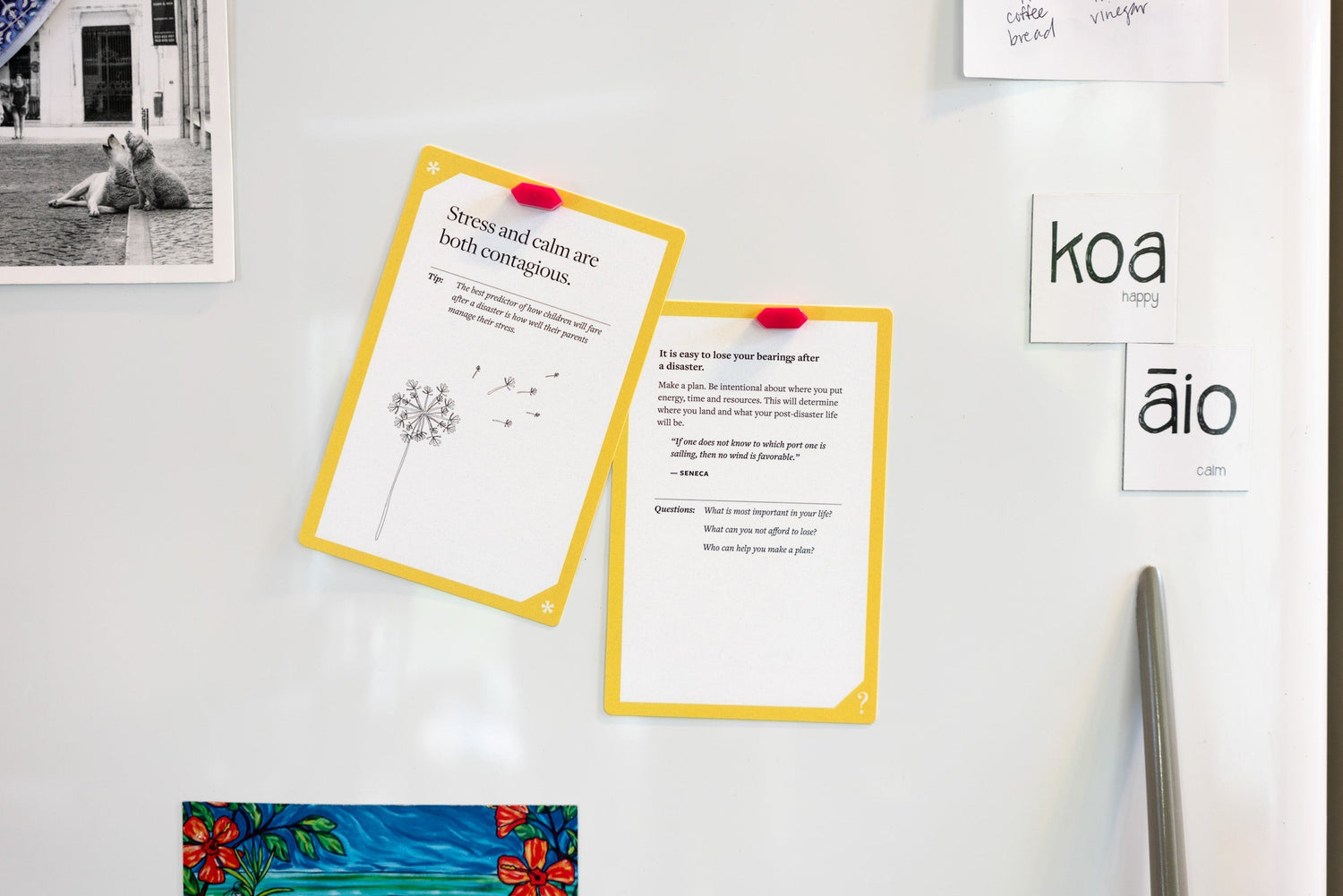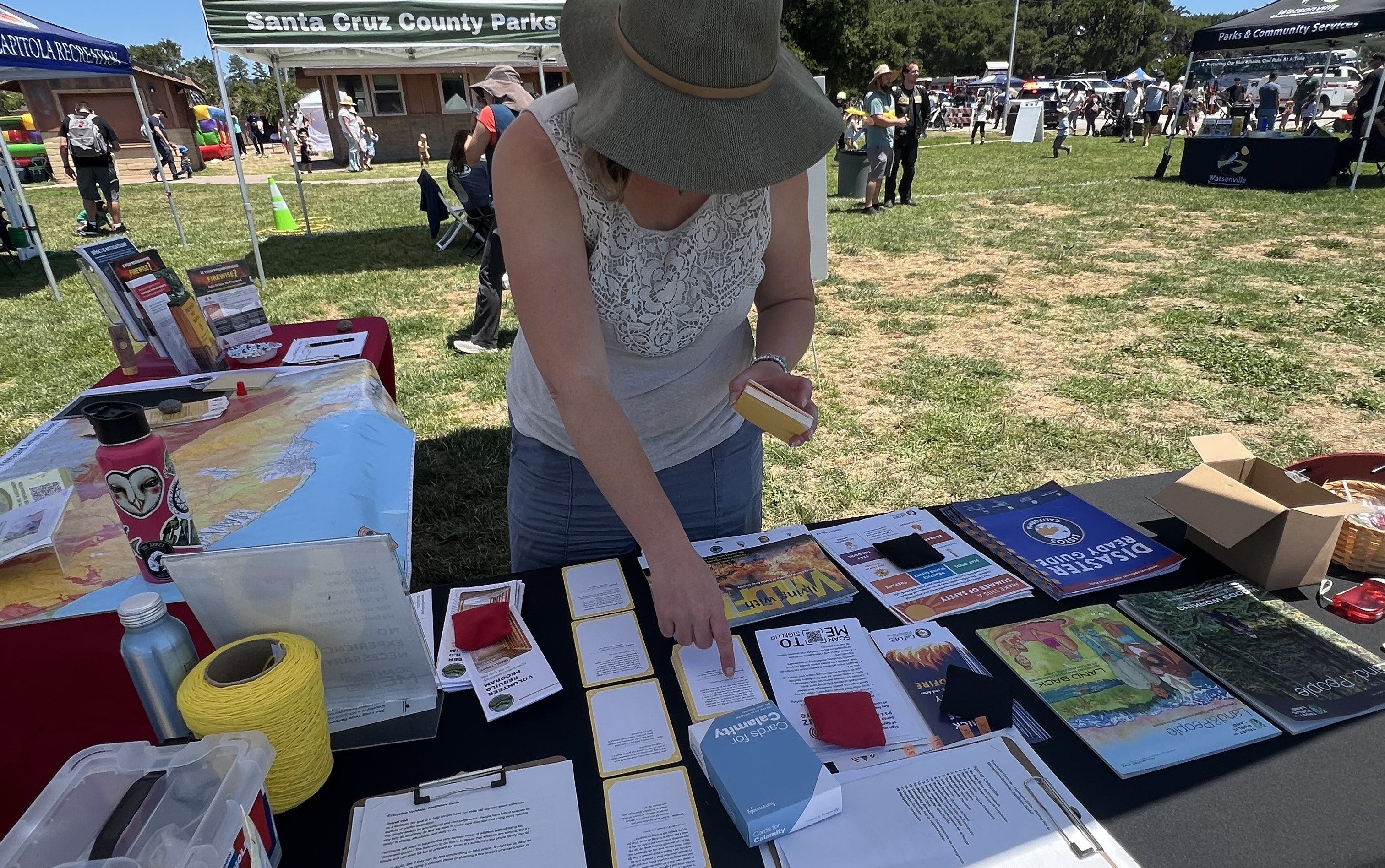When wildfires sweep through a community, what’s lost isn’t just homes and trees—it’s the quiet sense of safety, the rhythms of daily life, and often, the space to feel and grieve. In Larimer County, Colorado, Claire Bouchard, Chair of the Long Term Recovery Group, has witnessed this kind of loss unfold more than once. Supporting survivors of both the Cameron Peak Fire (2020) and the Alexander Mountain Fire (2024), Claire and her team are walking alongside communities on the long road from disaster to recovery.
In the summer of 2024, flames tore across the foothills west of Loveland, threatening the gateway town of Estes Park and devastating the neighboring mountain communities of Cedar Park and Storm Mountain. These close-knit areas—served entirely by volunteer fire departments—saw homes reduced to ash, and families forced to navigate the complex and often overwhelming maze of insurance claims and rebuilding decisions.
As Claire explains, recovery goes far beyond the physical work of rebuilding. It means making space to acknowledge grief, navigating long-term disruption, and facing the lingering fear and uncertainty echoed in the blackened landscape that remains.
Thanks to a generous donation from Good360, Claire and her partners introduced Hummingly’s Cards for Calamity into these wildfire-impacted communities. Designed to support emotional recovery and reconnection, the card decks were quickly embraced by service providers, case managers, and community leaders.
“People just thought they were so clever and needed—we hadn't seen that kind of tool before. It felt like the cards filled a gap.”
The Cards for Calamity equip long-term recovery groups and local organizations with a simple but powerful resource—helping individuals and communities begin emotional healing and reflection, a vital part of moving forward after disaster.
“It just takes one person to say, ‘It’s OK that we talk about this.’ That moment gives permission. And it opens space for healing that goes beyond the paperwork.”
The rollout began with the communities of Cedar Park and Storm Mountain. Survivors were invited to explore the cards quietly—at their own pace and in their own way. Whether over coffee, during a solo walk, or in small, meaningful conversations, the cards offered a grounding way to begin processing difficult experiences.
“It’s a refreshing change from sitting in a room with 30 people getting talked to by an insurance claims adjuster. It’s personal. It’s human.”
In August, Claire’s team will bring the cards to a deeply meaningful event: the five-year commemoration of the Cameron Peak Fire, Colorado’s largest wildfire in history. There, they will help create a “connectivity center”—a space for survivors to pause, reflect, and reconnect with one another in ways that honor both their losses and their strength.
“They’ve had a lot of individual sacrifices and impacts, but as a community, they’ve really pulled together in a way they never probably could have seen beforehand. So we’re working with our Office of Emergency Management to include the cards at the event.”
For Claire and her team, recovery isn’t just about policies or response plans.
“The Cards for Calamity give permission and space for people going through something that is outside of the paperwork and process component of recovery. They just get to the heart of recovery being a human experience.”
Hummingly is honored to be part of this quiet, powerful transformation.
“I’m just grateful,” Claire adds. “Grateful for Good360. Grateful for foundations that think outside the box about what recovery really means.”
Through thoughtful partnerships like the one with Good360, Hummingly is able to reach communities when they need it most—delivering tools that are not only practical, but profoundly human. These collaborations make it possible for healing to begin in everyday moments: a shared card, a quiet reflection, a conversation over coffee. Together, we’re helping communities—and the people who serve them—recover with care, dignity, and connection at the heart.



